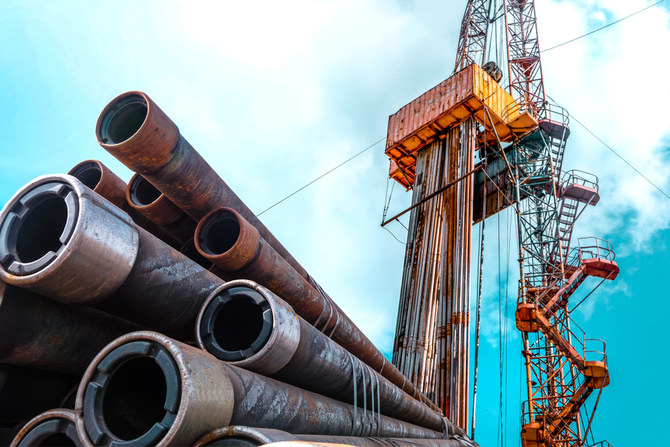On Wednesday, a number of important players in the petroleum industry, including the Nigerian National Petroleum Company Limited (NNPCL), the Nigerian Midstream and Downstream Petroleum Regulatory Authority (NMDPRA), and others, denied any involvement in acts of economic sabotage in the industry.
The federal government is now aiming to produce two billion barrels of crude oil per day in order to increase its foreign exchange earnings, according to Dr. Wale Edun, Minister of Finance and Coordinating Minister for the Economy.
This comes after the Dangote Refinery disclosed that the NNPCL provides 60% of its raw oil needs.
The Chief Executive Officer of NMDPRA, Engineer Farouk Ahmed, the Group Chief Executive Officer of NNPCL, Senator Heineken Lokpobiri, the Minister of State for Petroleum, and Senator Opeyemi Bamidele, the Senate Leader, chaired an interactive session in Abuja where the ad hoc committee investigating allegations of economic sabotage in the petroleum industry made the denial.
During the discussion, Senator Lokpobiri stated that a lot of false information about the responsibilities his Ministry and other agencies are playing to make it inclusive for potential investors is already available to the public.
The Minister stated that Nigerians would have the opportunity to learn the truth about what is really going on in the industry during the Committee’s scheduled public hearing.
He said: “Please do us a favour by televising the planned investigative hearing on the alleged economic sabotage in the Petroleum Industry live.”
The company, which is owned by more than 200 million Nigerians, should be exempt from any sabotage, according to NNPCL’s GCEO, Kyari.
Kyari said: “We are faithful, loyal and committed to the greatness of this country. We are not criminals, thieves or saboteurs as being alleged through wrong narratives.
“The NNPCL under our management and by operational guidelines or relevant provisions of PIA Ana CAMA, is today a profit-making company after about 43 years of losses.
“Today from 1.4million barrels it was months back, the production level has increased to 1.65million barrels per day and will soon hit the expected two million barrels per day.
“There is nothing for NNPCL to sabotage because we are out to maximize value and profits for the country.
“We are not against any domestic refinery because the laws are clear as far as processes and procedures are concerned.
“As requested by the Hon Minister of State for Petroleum, the planned public hearing on alleged sabotage in the sector, should be televised live for Nigerians to know the truth of the situation on the ground.”
The scheduled public hearing should be broadcast live on television, according to Engineer Farouk Ahmed, the Chief Executive Officer of NMDPRA, so that Nigerians are aware of who is allegedly engaging in economic sabotage in the industry.
Ahmed said: “A lot of negative stories and narratives have been written and published against us in NMDPRA on how we are carrying out our regulatory functions without us telling our own story.
“Gratifyingly, the planned public hearing will give us the appropriate platform of laying our facts bare to Nigerians for them to know who is sabotaging who.
“The investigation should be public and televised live.”
Aliyu Sulaiman, the Group Chief Strategy Officer of Dangote Refinery, stated in his presentation that of the five million barrels of crude oil they have recently received, sixty percent came from NNPCL, twenty percent was imported, and twenty percent was bought.
He applauded the NNPCL for providing Dangote refinery with such a large supply, but he also said that the refinery is a baby and needs everyone who is involved to help it grow and not fail.
But according to Abdulkabir Adisa Aliyu, National Chairman of the Depot and Petroleum Marketers Association of Nigeria (DAPMAN), Dangote reported N133 billion in profit from sugar sales in Nigeria for the previous six months.
He added that Dangote’s monopoly on the Nigerian sugar industry allowed him to accomplish such a remarkable feat.
He went on to declare that no one individual or organisation should be able to monopolise the petroleum industry since “monopoly kills business.”
In a similar vein, Alhaji Abubakar Shettima, the National President of the Independent Petroleum Marketers Association of Nigeria (IPMAN), cautioned the committee against petroleum industry monopolies during his presentation.
“The current value chain in the downstream should be sustained to allow other investors to participate.
“NNPCL is doing its best but should please improve on the supply of products to retail outlets across the country to end the incessant queues at filling stations,” Shettima said.
In his speech, Edun expressed trust in the ad hoc committee’s leadership to lead an objective and fair examination and stated that the rise in crude oil will stabilise the nation’s foreign exchange market.
Edun said: “In the 2024 budget, we have estimated and projected 1.7 billion barrels per day. We are below that target. Crude oil production is moving up. I believe that we have the expansion. We are up 1.6 billion barrels per day and we have this commitment that we will be able to reach two billion barrels per day.
“And that is critical. Why it is critical is that that is the first source of foreign exchange as well as foreign revenue and at a time when President Bola Tinubu’s policies are geared at stabilizing the economy, a critical aspect of that is the inflow of foreign exchange to stabilize the exchange rate, enable the exchange rate to appreciate, thereby helping to reduce inflation, and that will now lead to the Central Bank and monetary authorities being in a position to lower interest rates and therefore encourage investment to get the economy going.
“As we know, investment is the basis on which we can increase productivity, grow the economy, create jobs, and reduce poverty.
“So it is critical that NNPCL, that the oil sector as a whole, performs and that’s why the fiscal environment has been improved. We all know the oil is there.
“It is the investment environment that encourages the private investors to come in, to produce the oil, especially in the scenario of moving away from fossil fuels.
“The NNPCL has even declared a war on issues militating against oil production in the country. We know of issues of insecurity, and issues of damage that have limited and made us come below the target. So there is a commitment to dealing with these issues.
“The focus also remains in the oil and gas industry, in improving incentives already established as signs of executive orders, which have meant that oil and gas investments, particularly in the gas sector, have started to flow back.
“The outlook of oil prices for the rest of this year and beyond is that the positive could be strong. We expect that the price is going to stay relatively high and so we must seize this opportunity.
“Among other things, we must seize this opportunity to maximize the whole oil and gas sector value chain and that’s why we are here to discuss what it will take to get us really moving.
“So I welcome this all-important conversation that I look forward to today with all my heart, in helping to achieve greater efficiency, greater investment, and greater success in our all-important oil and gas sector, particularly as well as the source of the oil, the petroleum industry.”
The ad hoc committee’s chairman, Senator Opeyemi Bamidele, stated in his opening statement that the committee’s goal was to identify the individuals undermining the petroleum industry rather than to conduct a witch hunt against any one person or group of people.
He mentioned the purported entry of inferior diesel and dangerous petroleum products into the nation as a result of Nigeria’s government-owned refineries going out of business.
“In 2021, specifically, the Federal Executive Council approved $1.5 billion for the turn-around maintenance of the Port Harcourt Refinery. Yet, this investment has not yielded significant returns.
“For us, in the Senate, we believe, it is unfair and unpatriotic to treat government businesses or public corporations as an orphan while private businesses are flourishing and thriving,” Bamidele said.
The public hearing has been scheduled for September 10–12, 2024 by the committee and their House of Representatives counterpart.




